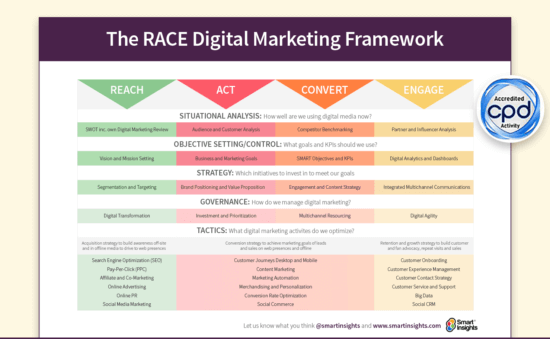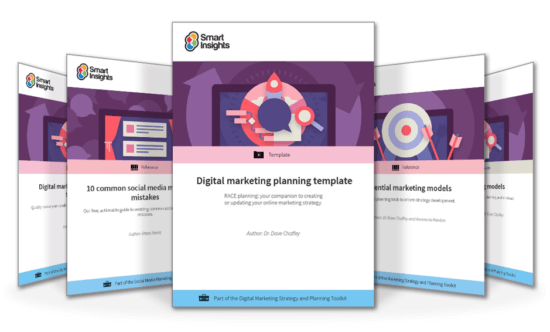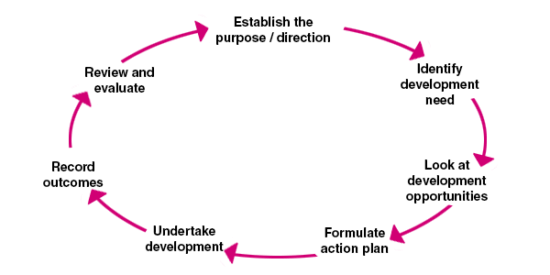Helping your team to develop their skills and knowledge can improve engagement, retention and business results.
Upskilling your digital marketing team should be an ongoing project if you want to ensure you’re always using the best tools and techniques, as well as getting the best results.
Far too often, companies take on a business-as-usual approach, with everyone performing their usual tasks and a lack of focus on learning. While this results in getting the job done, it doesn’t help your team grow or develop new skills.
Ensuring you put some focus on learning not only benefits each individual member of your team, it can ensure that you retain talent, grow skills that will benefit your business and bring more activities in-house in the long run.
You might think that team development needs a big budget, but there are plenty of options available that can allow you to grow people’s skills without incurring a high cost. Ultimately, this means that upskilling programs can deliver great ROI, as well as keep your team motivated and engaged.
To help you put a plan in place for growing your team’s skills this year, here are five ways that you can put focus on and encourage development:
Personal development plans
It’s all well and good putting a plan in place to grow your team’s knowledge, but what is right for one person won’t be the best thing for another. Not only do people have different skills and interests, they also learn in different ways, so this needs to be factored in.
This is where personal development plans come in.
Talking to each member of your team individually to identify where they want to develop, what learning methods best suit them and what their personal goals are within the business will help you put a plan together for their learning.
Working with them to ensure that their needs are met and that there is resource available to allow for learning time, as well as access to the right tools will ensure that their plans are actionable. It will also give insight into where the gaps are in your organization when it comes to developing employee knowledge and skills.
It’s important that all of this is documented in order to help with progress tracking and for tying in activities with team KPIs. However, you also need to put a review process in place, so you come back to these plans on a regular basis. This will ensure you can spot any potential problems – such as a lack of resource impacting learning time – and track everyone’s success.
The need for individual plans is the reason that we developed our Personalized Learning Plan. The PLP allows you to assess your knowledge and skills across digital marketing, as well as how important these are to your organization. Your results will highlight the areas that you need to focus on, while we’ll also provide recommended resources to help you develop in these areas.
Online training
While courses and off-site training are great options to aid with upskilling your team, they can be expensive – both in terms of money and time. Having staff out of the office for full days, if not longer, is not always achievable, especially in small teams, so alternative training options are often the best option.
Online training is ideal for organizations of all sizes, as it enables learning material to be accessed anywhere at any time. This means that your team members have more autonomy when it comes to their development, allowing them to fit training around their work responsibilities and personal time. This form of training is also often great for bite-sized learning, offering quick modules that can be completed in a short amount of time and revisited as and when required.

We’ve created several different online training and learning options to help with individual and team development – all of which are designed to improve your knowledge but also provide actionable advice. These can be accessed online at any time and anywhere, ensuring that learning is defined by each team member.
Depending on your membership level, you can access Quick Win micro-learning courses that are designed to help you get a specific job done. From performing a content marketing audit to creating reports with Google Data Studio, our Quick Wins can provide the practical knowledge needed to get results quickly.
We also have e-learning courses available, which provide a deeper dive into various aspects of digital marketing, including our exclusive RACE Planning Framework, content marketing, and email marketing. These are designed to improve knowledge but also continue to build practical skills that can benefit everyday roles.
Relevant resources
As well as access to online training and learning, it’s a good idea to ensure that your team has access to resources that are relevant to their learning but also their daily activities. Whether you create helpful company documents or external resources, they can serve as a reference for activities and best practice to ensure all your team members are on the same page.
Resources can include, guides, checklists and templates for various documents, such as reports. This helps to aid learning but also ensure that everything created within the company is cohesive and follows similar structures.

All resources should be updated regularly to ensure they are still relevant, as well as kept in a location that is easy to access – both in the office and remotely. Forming a resource library will help people structure their learning and ensure they know where to go if they need answers to any questions.
When it comes to externally available resources, we’ve put together a comprehensive collection that can aid in a number of areas. From guides that can provide helpful information and supplement e-learning to templates to make briefs and reports easier, they are all available online at all times. All your team needs is a login and they can always find the answers and resources they need.
Conferences and webinars
While a large amount of time out of the office for a course may not be feasible, you may want to consider the benefits that come with conferences. As well as being great networking opportunities, conferences allow people to get helpful information – usually alongside real-life examples and case studies – ask questions of experts and talk to other people in their industry.
They can offer brilliant opportunities for learning and dealing with situations and tasks in ways they may not have considered before. Speakers at conferences are generally experts in their fields and have a wealth of knowledge to share, which is worth making the most of.
However, some conferences can be fairly expensive to attend – especially when you factor in travel and accommodation. This is why webinars are a great alternative.
Webinars can be anywhere from half an hour to a few hours long. They are also accessible via any computer, so your team don’t need to take time away from the office. The majority of webinars are also available as recordings – although you miss out on the opportunity to ask questions – so you can fit them around your schedule.
Just as with conferences, you get the opportunity to hear from the experts, see examples and have information delivered in an engaging way. This can make a big difference if someone on your team struggles with reading long documents.
Knowledge sharing
As well as looking externally for ways to upskill your team, you should also look at the skills you already have at your disposal. People in your team and in other areas of your business are going to have information, skills, and ideas that could benefit others and form part of their development, so putting regular knowledge sharing in place can be a great way to utilize all of this.
Implementing regular sessions – such as Whiteboard Wednesdays – offers brilliant opportunities for people to share their knowledge. Sessions don’t have to be long or overly complicated, making information quick and easy to present, while also giving the opportunities for questions to be asked.
Create a schedule and a basic structure for these sessions so everyone is aware of when they are presenting a session and what sort of information they should include. However, you don’t want to be too restrictive with your structure, as a great part of these sessions is giving people the opportunity to share their knowledge in different ways. This can mean standard presentations or practical examples.
Final thoughts
There are many options for upskilling your team, so there’s really no excuse not to make this one of your focuses for the year ahead. Working on staff development keeps your team engaged, improves wellbeing and helps you keep hold of talent, as it shows that you want them to remain at your company.
Development can relate to various skills, from marketing principles to managing people in order to take on a senior role. The skills you focus on will very much depend on the personal development plan you put in place for each team member, so make sure you start here before planning in any activities to be completed.










